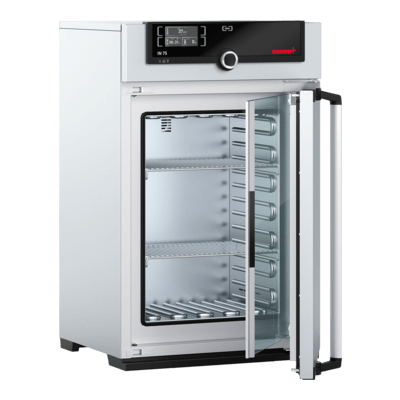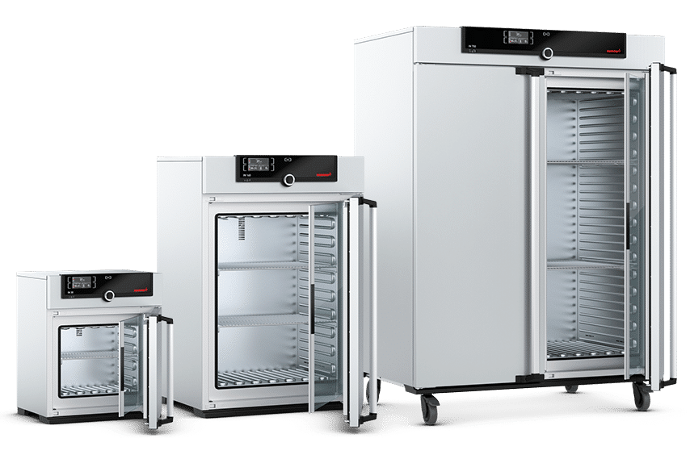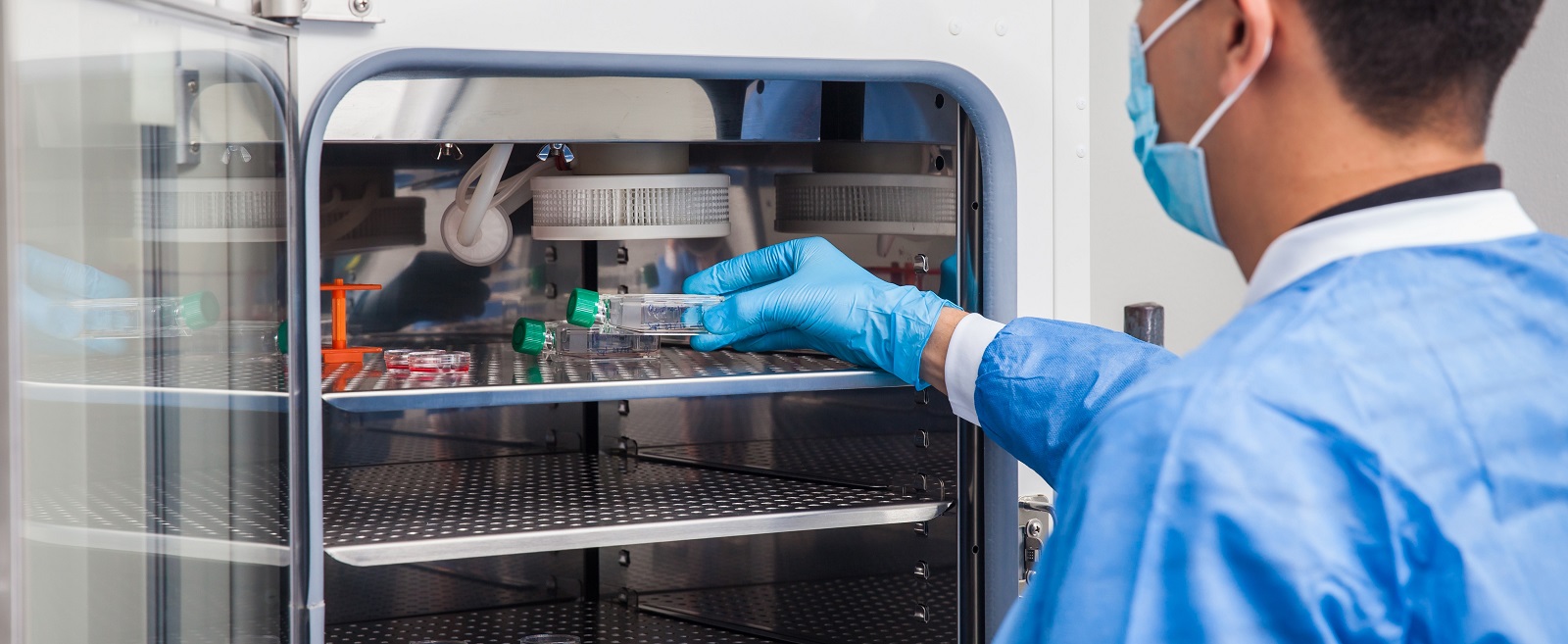Ideal for all applications with temperatures up to +80°C
The Memmert incubator I is at home everywhere in the world of research, medicine, pharmaceutics and food analytics, as well as food chemistry.
In the laboratory, the Memmert incubator I is ideal for all applications with temperatures up to +80°C – specifically for incubating living cultures at +37 °C. Thanks to the finely-tuned control technology, critical temperature overshoots are completely ruled out. Valuable loads are therefore warmed up particularly carefully in this highly precise microbiological incubator.
- temperature range up to +80 °C
- 8 model sizes (32 to 749 liters volume)
- 2 model variants: SingleDISPLAY and TwinDISPLAY
- natural convection or forced air circulation N/F
- double doors (interior glass, exterior stainless steel) for a clear view without a drop in temperature
- activation of sterilization routine via ControlCOCKPIT (TwinDISPLAY)

A comprehensive range of incubators
- CO2 incubators: ICO series
- Peltier-cooled incubators: IPPeco & IPPecoplus series
- Incubators: IN / IF / INplus / IFplusv series
- Compressor-cooled incubators: ICP series

A laboratory incubator is an instrument that has temperature control optimized to use around incubation temperatures (25°C, 30°C, 37°C). From a technological point of view, a laboratory incubator is very similar to a laboratory oven but has a better temperature control around the incubation temperatures and a lower maximum temperature. A laboratory oven on the other hand focusses more on having a larger temperature range. The main application for laboratory incubators is microbiology.
Standard incubators typically only have heating elements, and their minimum temperature is 5°C or more above room temperature. A cooled incubator also has a cooling element (peltier or compressor). One of the most common applications of a cooled incubator is the cultivation of yeasts and moulds, which require an incubation temperature of 25°C in most cases. Another common application is to allow the incubator to cool to refrigerator temperature when the end of the incubation time falls into the weekend. This way the microbial growth stops, and the colony counting can happen on Monday instead of during the weekend.


